
TYPICA GUIDE 2024 Recap: A Platform for Nurturing Individuality, Not A Competition
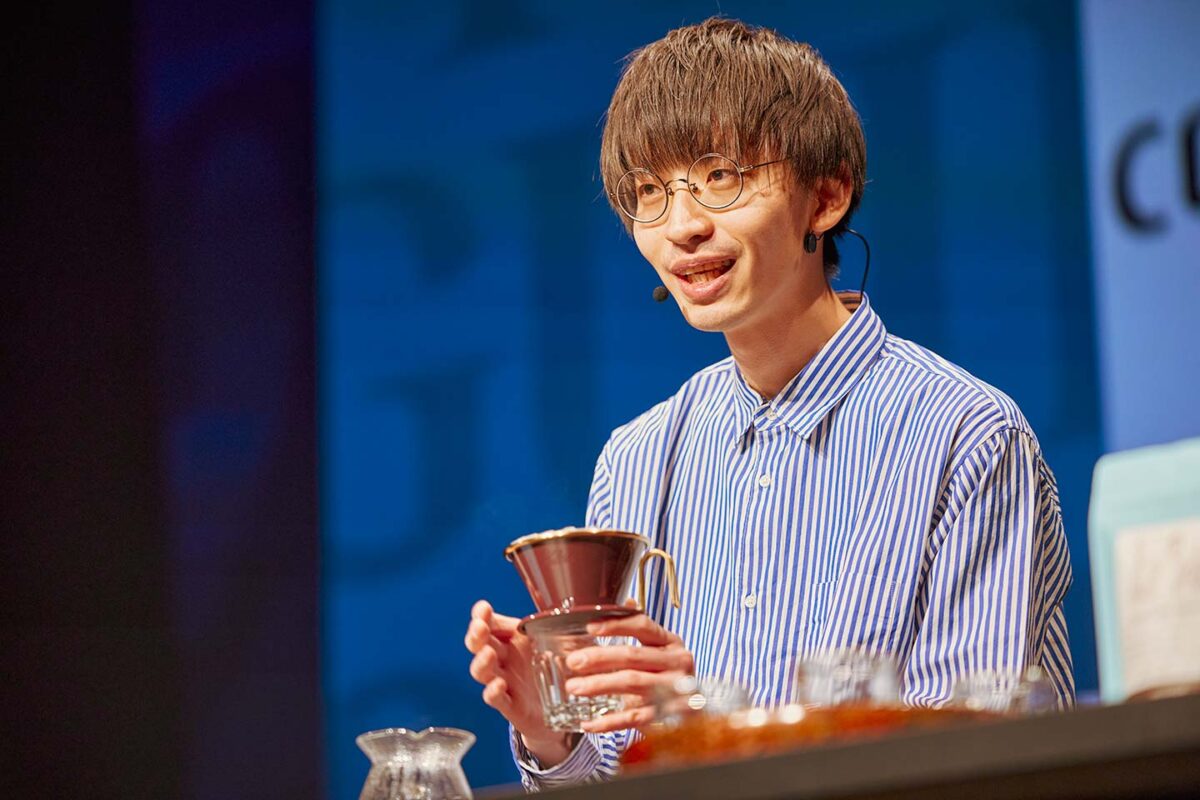
On March 20, 2024, coffee lovers in Japan gathered at Tokyo Portcity Takeshiba for the final round of “TYPICA GUIDE,” a service dedicated to helping all coffee enthusiasts discover truly delicious coffee. After the event, COFFEEMAN good from Aomori, northern Japan, emerged as this year’s 3-Star Roaster.
The final round featured seven 2-Star Roasters, each picked from a pool of 1-Star Roasters, who were chosen based on the recommendation of TYPICA community managers. During the event, each roaster took the stage for a seven-minute live brewing presentation. The fate of the 3-Star award rested in the hands of a diverse panel of Special Guests from various industries and the general public, who cast their votes both in person and online.
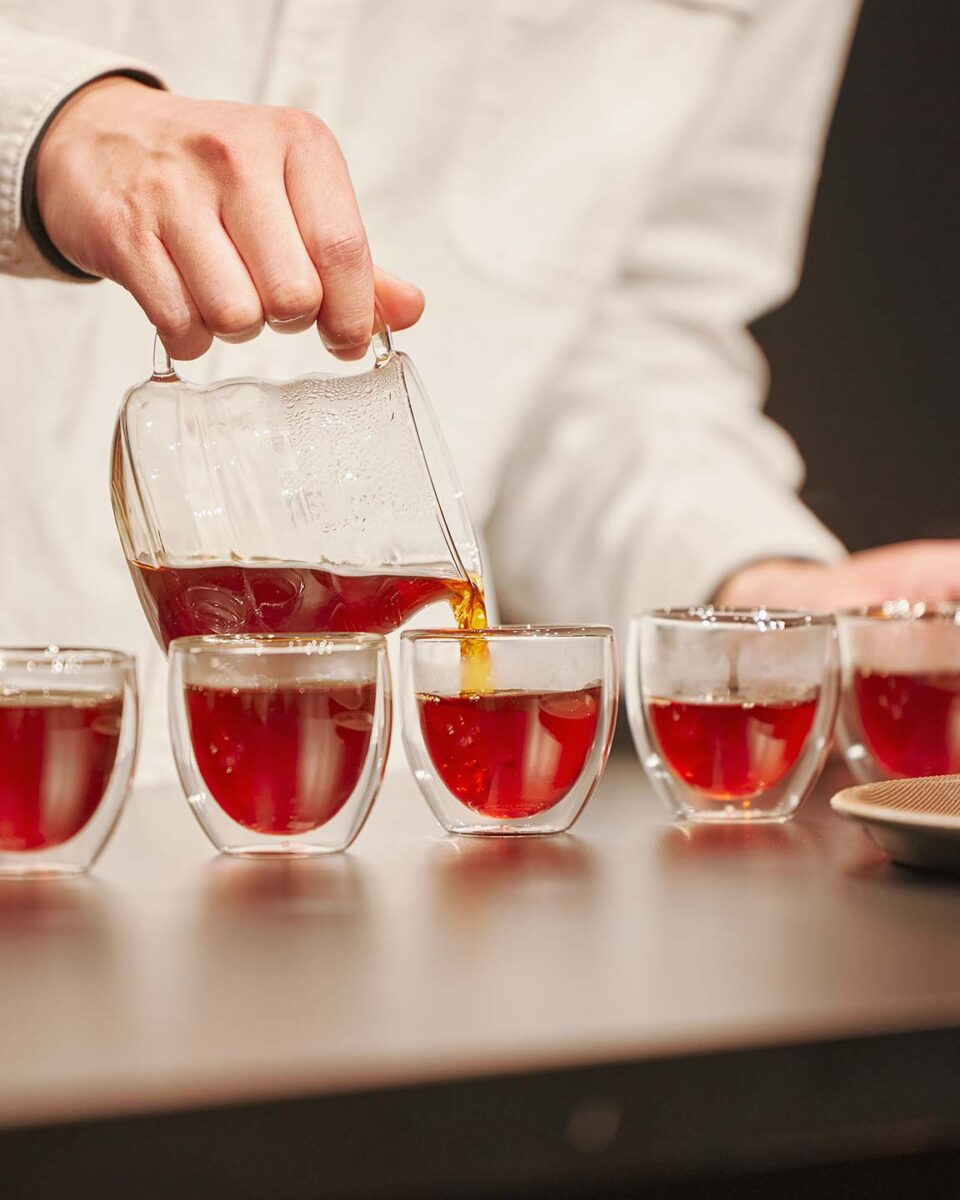
While TYPICA GUIDE takes inspiration from the Michelin Guide, what makes it truly unique is that it gives everyday coffee lovers a voice by allowing them to vote. Ayane Yamada, a co-founder of TYPICA who dreamed up the project and built its framework, shares her thoughts:
“Some people might feel intimidated by the world of coffee or are unsure about which roaster to visit. We wanted to provide an opportunity for them to enjoy coffee in a more casual and accessible way. Since founding TYPICA, our primary goal has been to distribute high-quality green coffee beans, but we also wanted to introduce roasters to a wider audience and help grow their fan base.
I’ve always believed that being a roaster is an incredible job. They’ve turned their passion into a profession, making their work a way of life. Not only do they bring joy to the customers right in front of them, but they also contribute to improving the lives of coffee producers on the other side of the world. Instead of enduring a job they dislike just to make a living, roasters embody the ideal of pursuing what they love with genuine enthusiasm. I wanted to create a platform where roasters could shine as symbols of such an ideal.”
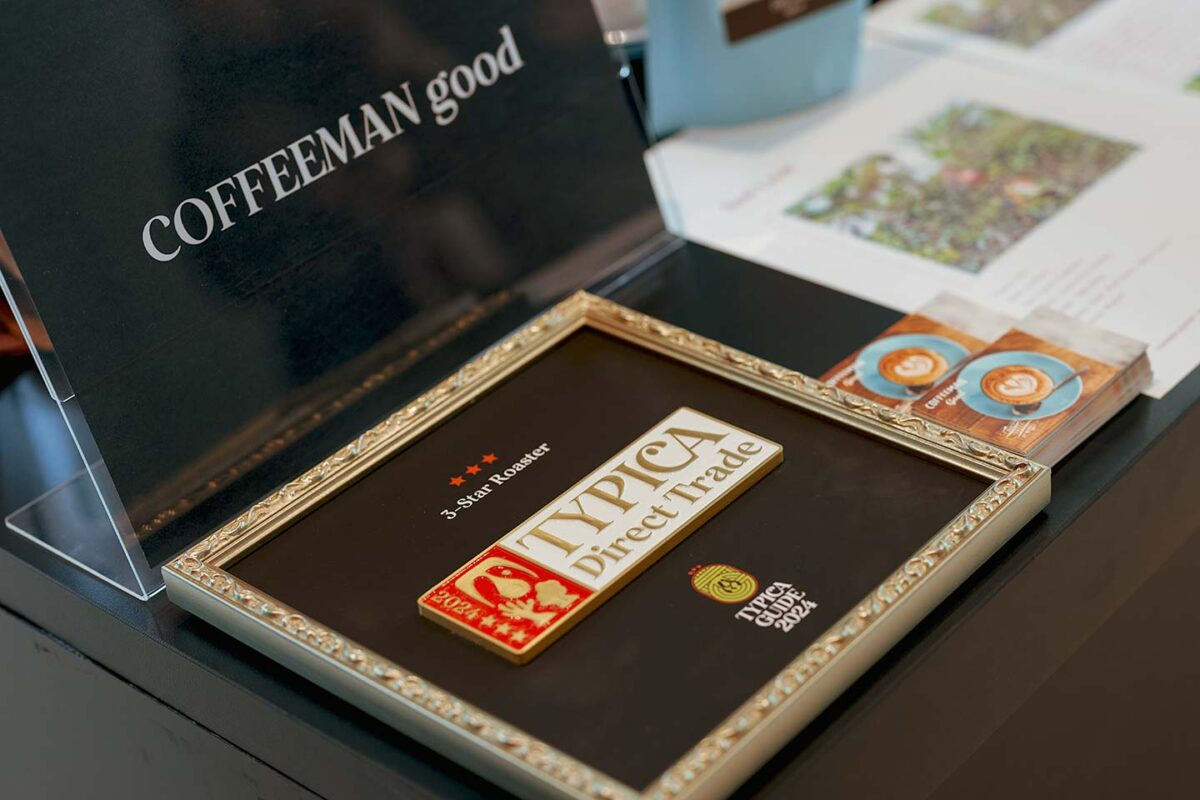
TYPICA GUIDE uses the categories of 1-Star, 2-Star, and 3-Star, which might make it seem like a traditional ranking system. However, TYPICA defines these categories a bit differently: 1-Star represents our recommendations throughout Japan; 2-Star is the one shop you’d recommend to a friend traveling within Japan if you had to pick just one per region; and 3-Star is the singular shop you’d suggest to an international friend if you could only choose one to represent all of Japan.
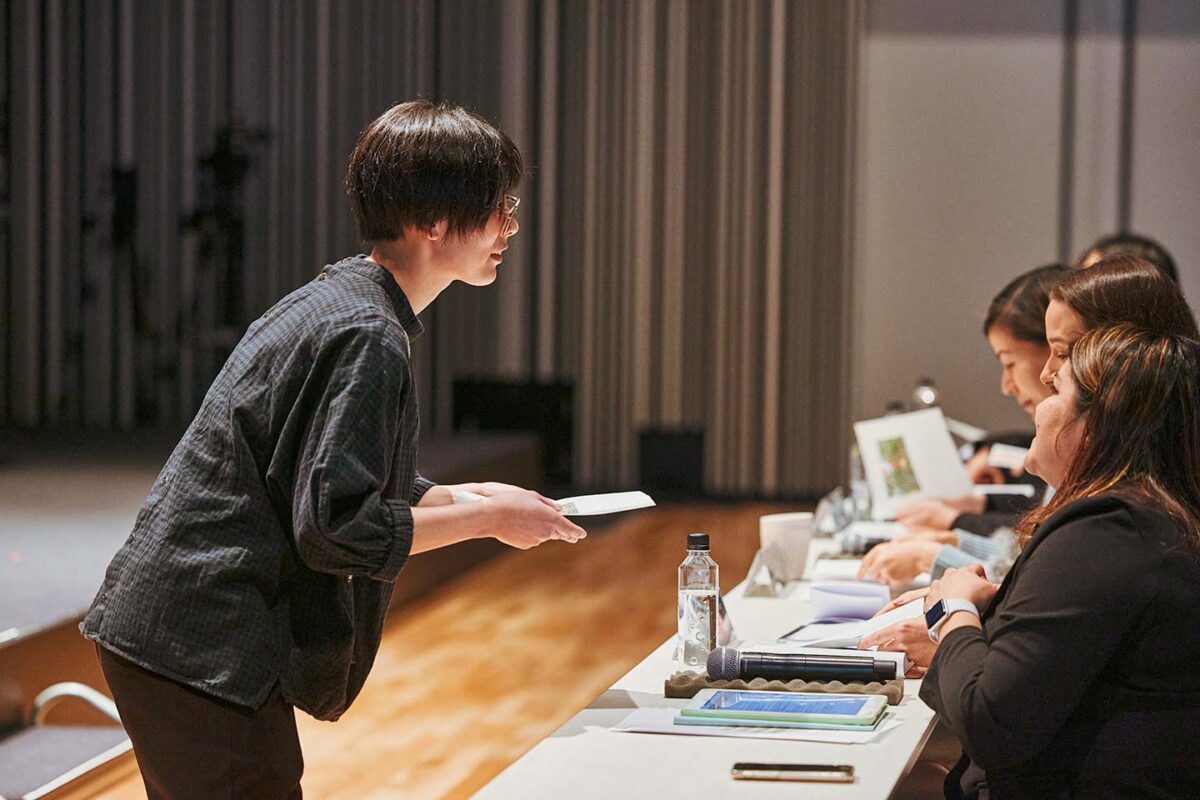
For the second TYPICA GUIDE final round, several improvements were made based on the previous event’s experience. In addition to providing a space for attendees to drink coffee immediately after hearing the presentations, the freedom of on-stage performances was significantly increased. While the previous event had unified ground rules for brewing methods and equipment, this time, individual requests were accommodated, such as allowing staff members to join the presentation, sharing self-made materials, and grinding coffee beans in advance. Hazuki Oishi, who served as the project manager for this year’s event, reflects on these changes:
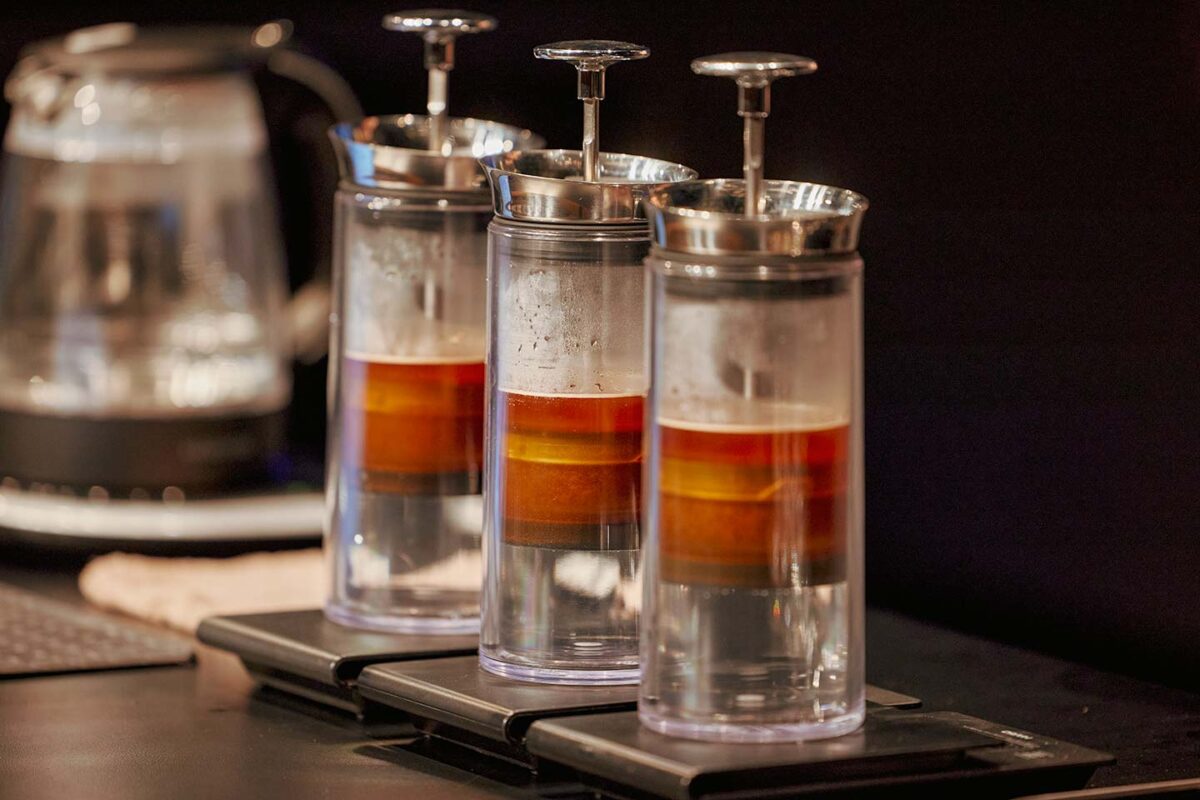
“There were some concerns within the company about whether the lack of set rules might lead to unfair advantages, with some roasters being able to do more within the time limit than others. But ultimately, we decided to go with a format that allows the roasters to really showcase their individual personalities. And honestly, the brewing methods and presentation styles don’t actually impact the outcome at all. Because at its core, TYPICA GUIDE isn’t about competing on technical skills; it’s a space for roasters to appreciate and nurture each other’s unique qualities and appeal.
Moving forward, I wouldn’t be surprised if we get some unexpected requests, like roasters asking if they can use milk. But I think that’s all part of what makes TYPICA GUIDE special. Seeing the ambience of the event in person for the first time was incredibly moving for me. It’s made me even more determined to do everything I can to encourage roasters to take part in the next TYPICA GUIDE.”
Now, let’s hear what the 2-Star Roasters had to say after the final round.

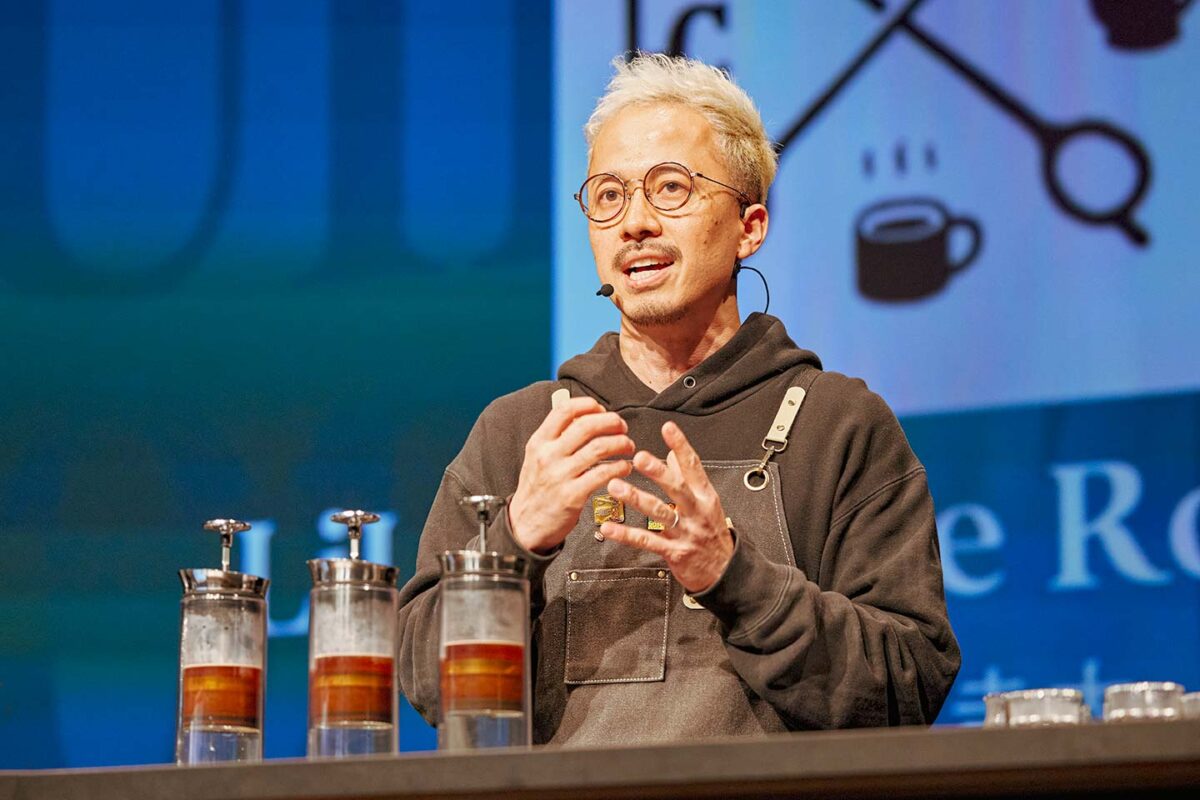
◆ LiLo Coffee Roasters / Keita Nakamura
It all comes down to the cup in front of you
In an industry full of competitions and chances to get your name out there, I already felt from the last time that TYPICA GUIDE was a one-of-a-kind stage to share our philosophy and beliefs. Putting together the presentation gives us a chance to really reflect on what it is we’re trying to achieve.
But I’ve got to be honest, the previous final round was a total disaster for me personally. I was way too confident, thinking I could just wing it without any prep. And within the first 10-20 seconds, I completely blanked on all the lines I had planned. That was 100% on me and my complacency.
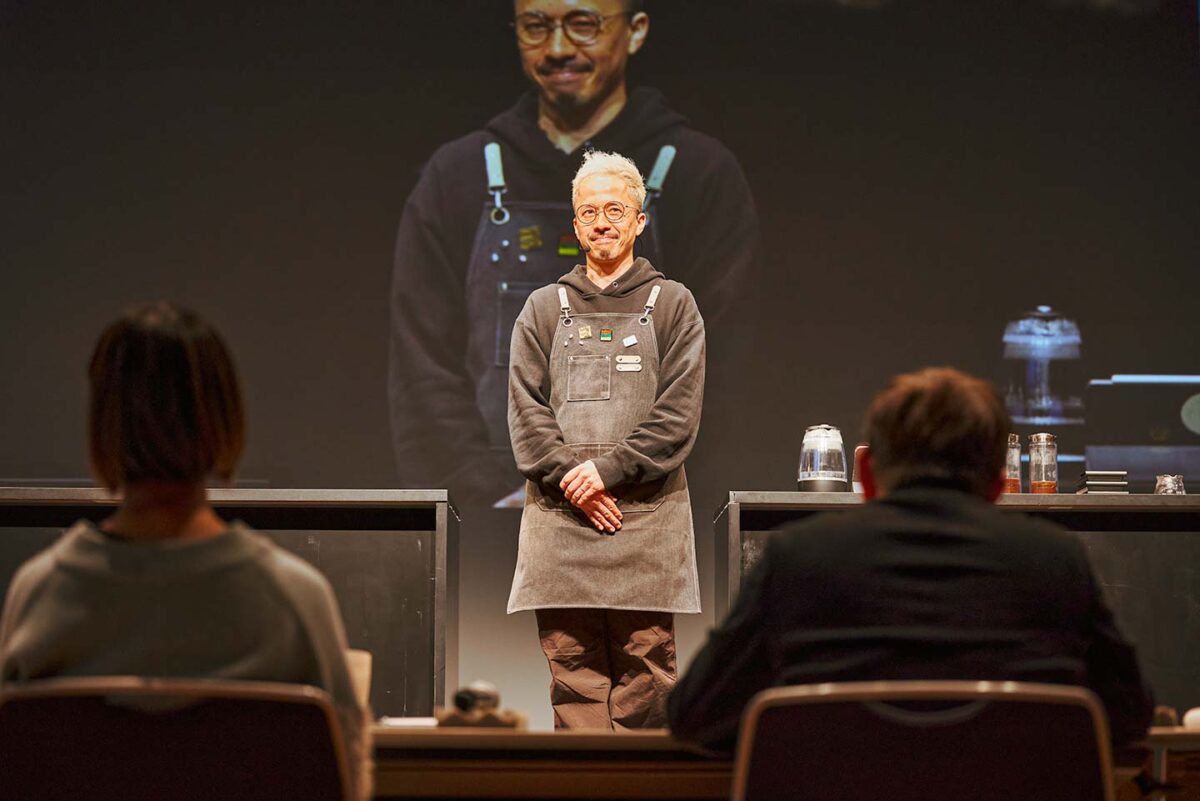
With that in mind, both LiLo Coffee and I were absolutely determined to earn the 3-Star this time. We worked together as a team to perfect the script, and we really went all out on every aspect, from the brewing process to the key points we wanted to emphasize in the presentation. After earning a 2-Star nomination and finalizing our base script, we spent a solid 10 days holding meetings and practicing from around midnight, after closing up shop, until the crack of dawn. We were ready to give it our all. That’s why it hits so hard to still be stuck at 2-Stars.
Thankfully, we received a lot of positive feedback from our customers. One that particularly sticks with me is a comment from one of our regulars, who, as I expressed my regret, said to me, “You were going on about all sorts of things, but honestly, as long as the coffee in front of you tastes good, that’s all that matters, right?” I’m sure it was a playful way of cheering me up, but it made me realize the most important thing: We can give back to the producers only when our customers truly appreciate the value of each cup.
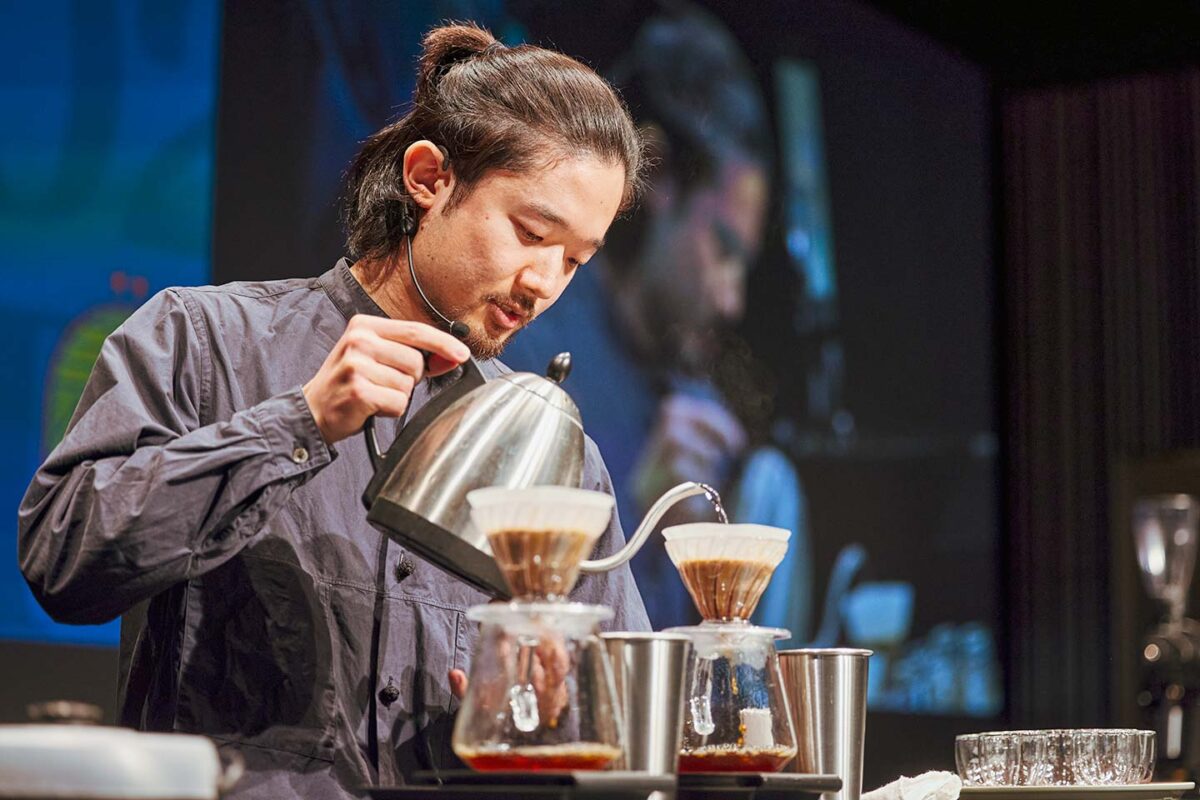
◆ ICOI COFFEE 佐々木 風帆 / Kazeho Sasaki
Having a platform to sincerely express our thoughts can be beneficial
Back in university, I took this class where I learned about how coffee production often relies on exploiting cheap labor in developing countries. That’s what first got me interested in coffee. Since then, I’ve always tried to be mindful of doing things that benefit society, like our composting efforts. So, for someone like me, TYPICA GUIDE felt like a meaningful opportunity because it values our vision, our backstory, and our passion. In fact, it didn’t take me long to put together my presentation draft.
In our everyday chats with customers, we don’t usually get into these “serious topics,” and we try not to get too much media attention. Even if a coffee shop out in the countryside talks about its ethical and sustainable practices, it only resonates with a handful of people. So, we’re pretty careful about what we choose to communicate and what we don’t.
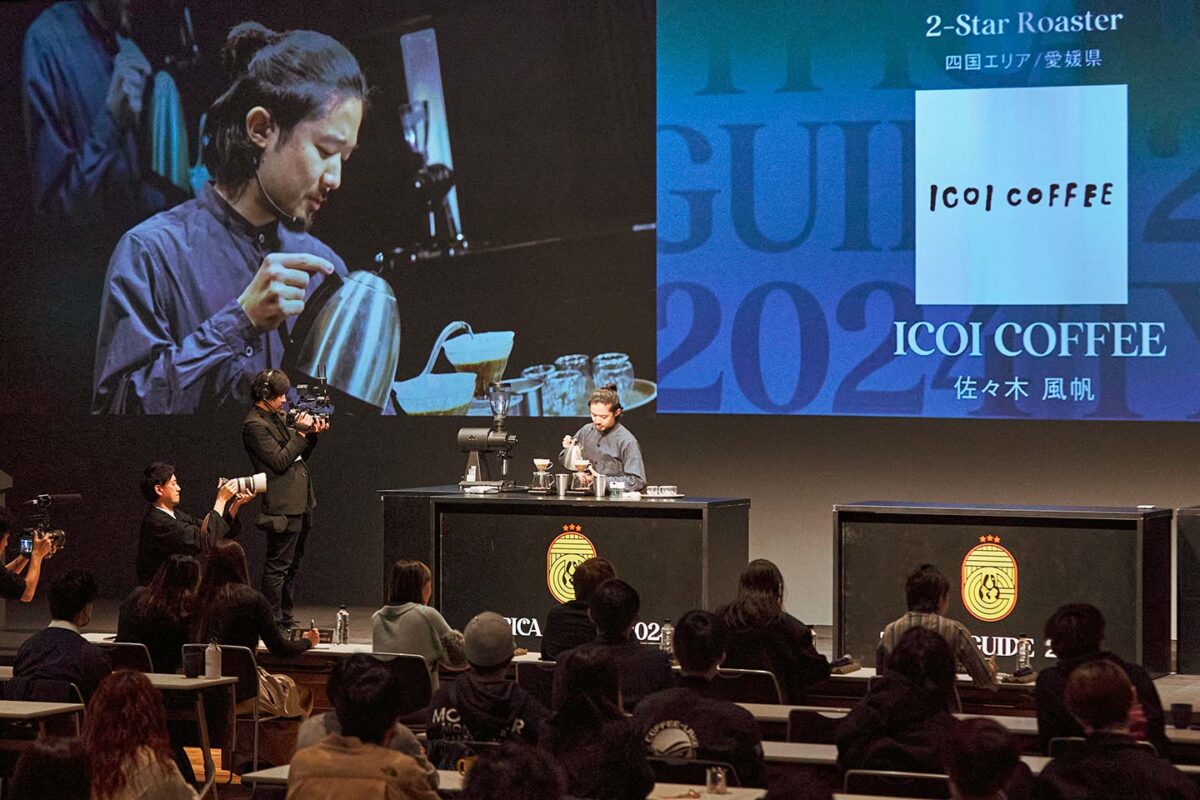
That being said, it’s beneficial to have opportunities to share ICOI COFFEE’s values, which are essentially my own. Ideally, our message would resonate with more and more people. We aim to strike a balance where we’re generally seen as casual and laid-back, but people also recognize that we have a serious side.
Plus, I know myself – when there’s nothing holding me accountable, I can get lazy. By declaring my aspirations in front of a big crowd at this event, I wanted to put myself in a position where I have no choice but to walk the talk. By slowly but surely putting my plans into action and letting my staff and customers see my efforts, I’m hoping to create a positive cycle of change.
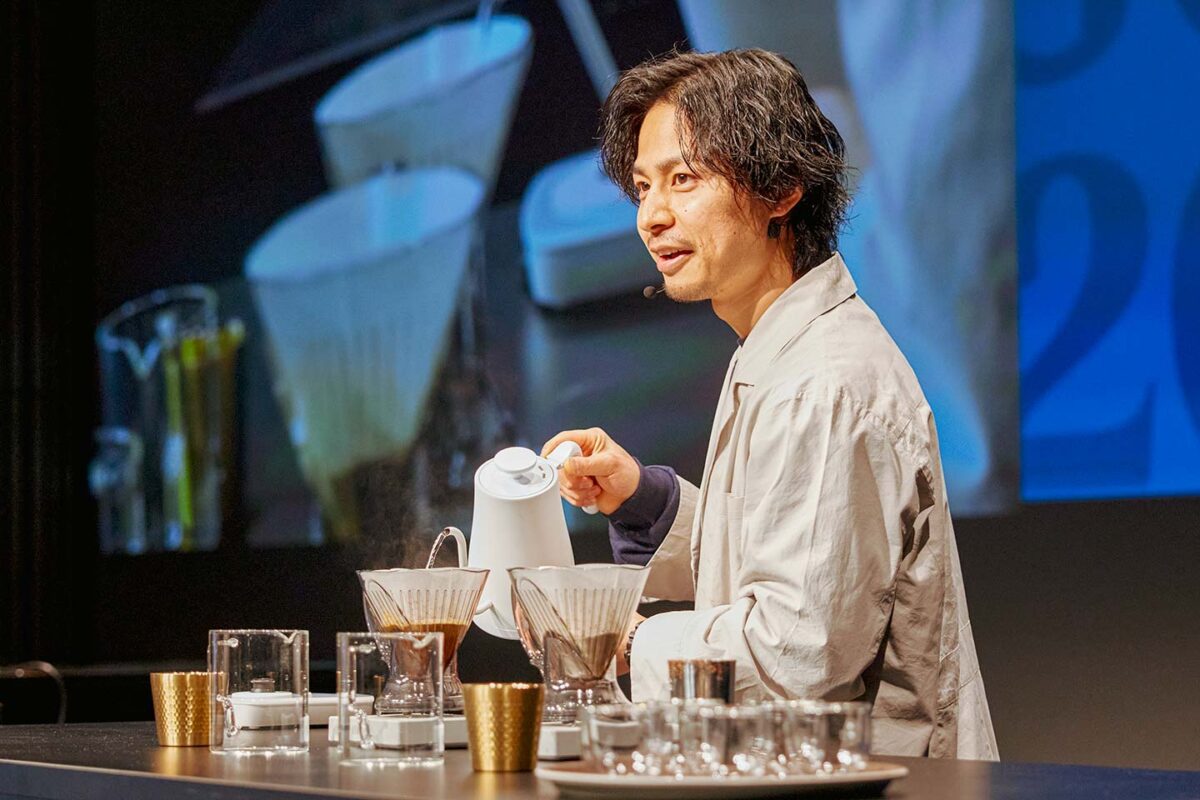
◆ Days Coffee Roaster / Wataru Shirai
Meeting kindred spirits inspired bigger dreams
One of the reasons I nominated myself for the TYPICA GUIDE 2-Star round was to challenge the mindset of people in my hometown, Niigata, who tend to be reluctant to venture outside their community. I wanted to be like the first penguin, bravely diving in to show that it’s not so scary after all, hoping that my example would inspire others to follow.
In the end, it was all positive. First, I realized the importance of condensing my thoughts and feelings into a seven-minute presentation and expressing them in a high-pressure environment. Several people approached me at the venue and in my shop afterwards, saying that my presentation was the most passionate. Knowing that the YouTube video will remain available, I can’t help but feel excited about the potential for unexpected encounters and opportunities in the future.
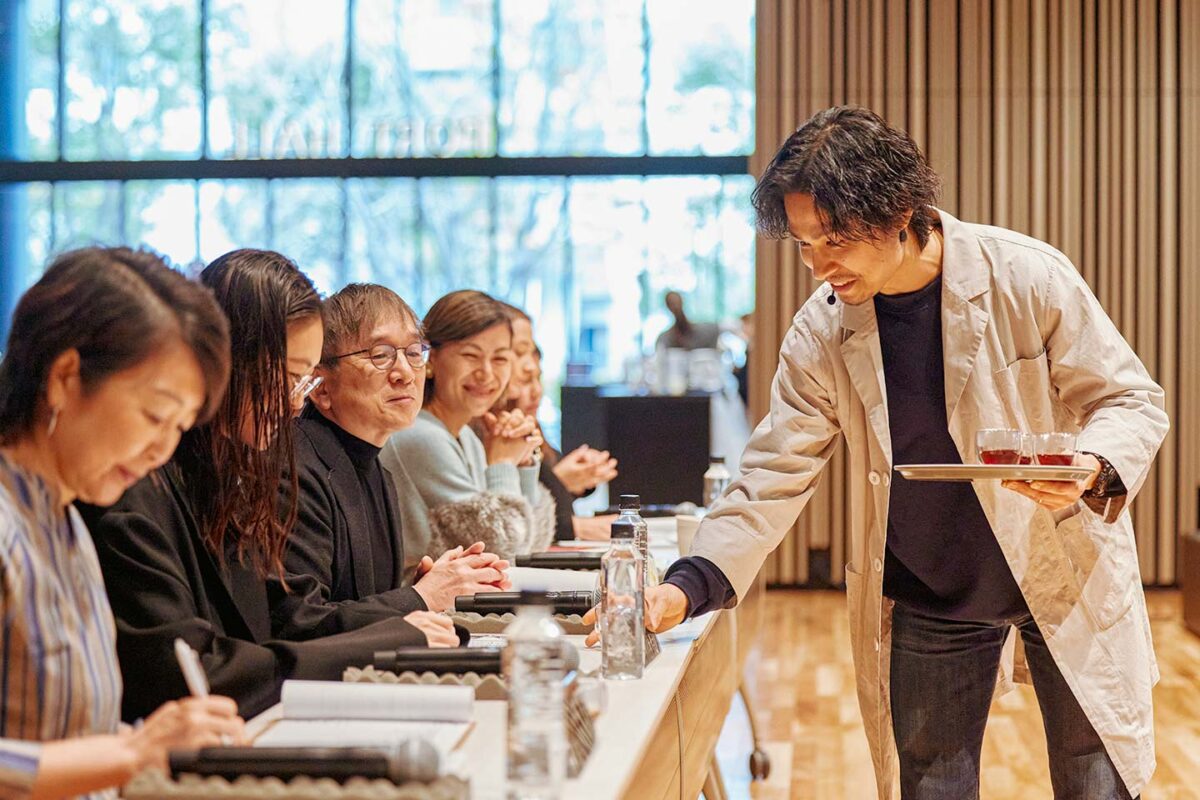
Second, I met fellow roasters who are working towards their ideals with the same level of passion, if not more. It reaffirmed that I’m on the right path, and above all, I was simply happy to get to know them. It clarified my vision of expanding our community even further.
Until now, I’ve focused on providing new values and experiences through coffee, creating a positive community in a consuming country. But going forward, I want to extend that circle to producing countries, making it normal for people to say, “I buy coffee from this specific producer every year.” To achieve this, I’m more determined than ever to visit coffee origins annually and increase the amount of green beans I source and roast.
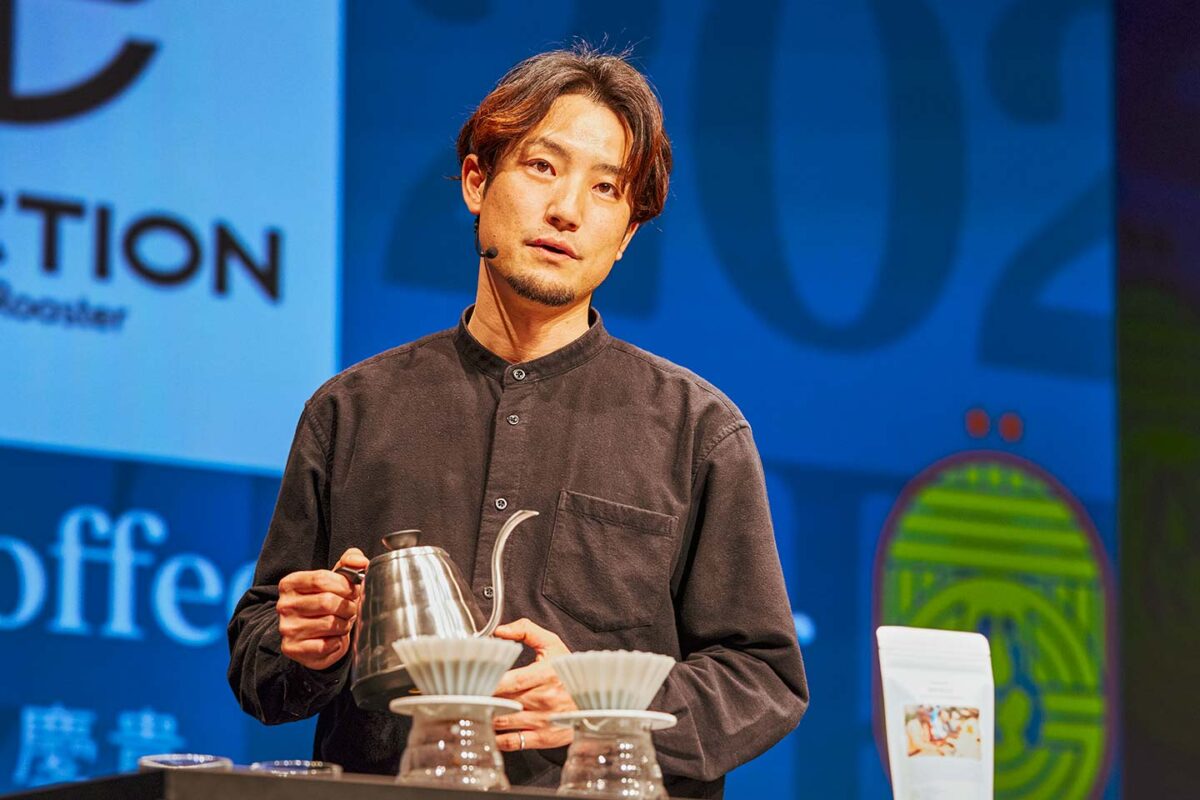
◆ JUNCTION Coffee Roaster / Yoshitaka Tasaki
Using pressure to drive team growth
With the number of specialty coffee shops in Kumamoto rapidly rising for better or worse, I had a couple of reasons for throwing my hat in the ring for the 2-Star contention. First off, I wanted to get the word out about my own shop. And second, as someone who’s been going to Colombia every year since 2021, even before we opened up shop, to buy green coffee beans straight from the producers, I figured I might have a thing or two to share.
Now, I’m not going to pretend I’ve been running a shop for a decade or two, and I only have about eight years of experience in the industry. But I decided to take on the final round, aiming to express my honest thoughts and experiences.
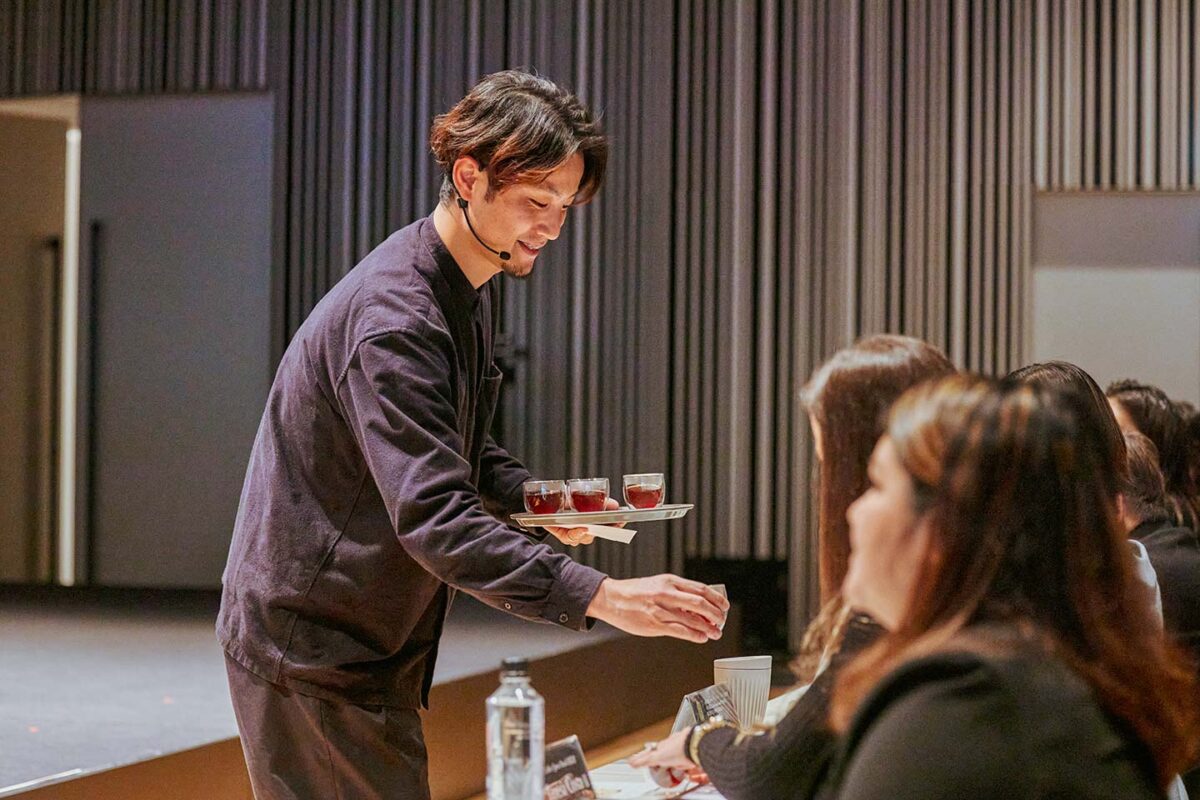
One of the good things about taking on this challenge was the chance to take a good, hard look at myself while preparing for my presentation. Later this year, I’m planning to set up a space where all our shop’s staff can give presentations in front of each other (and maybe even invite some customers). I reckon it’s a solid way to keep everyone on their toes, since sometimes words spoken in the moment don’t always lead to action.
Plus, I was really impressed by the teamwork of the other roasters in the final round. It is because they work together towards the same goal day in and day out that the roasters can invite their team members to a stage like this and put on a well-coordinated performance. To boost our own team’s strength, I decided to have everyone go through the same experience I did. Speaking from my own experience, I’ve always pushed myself by putting my dreams and goals out there, and I feel like it’s paid off in the long run.

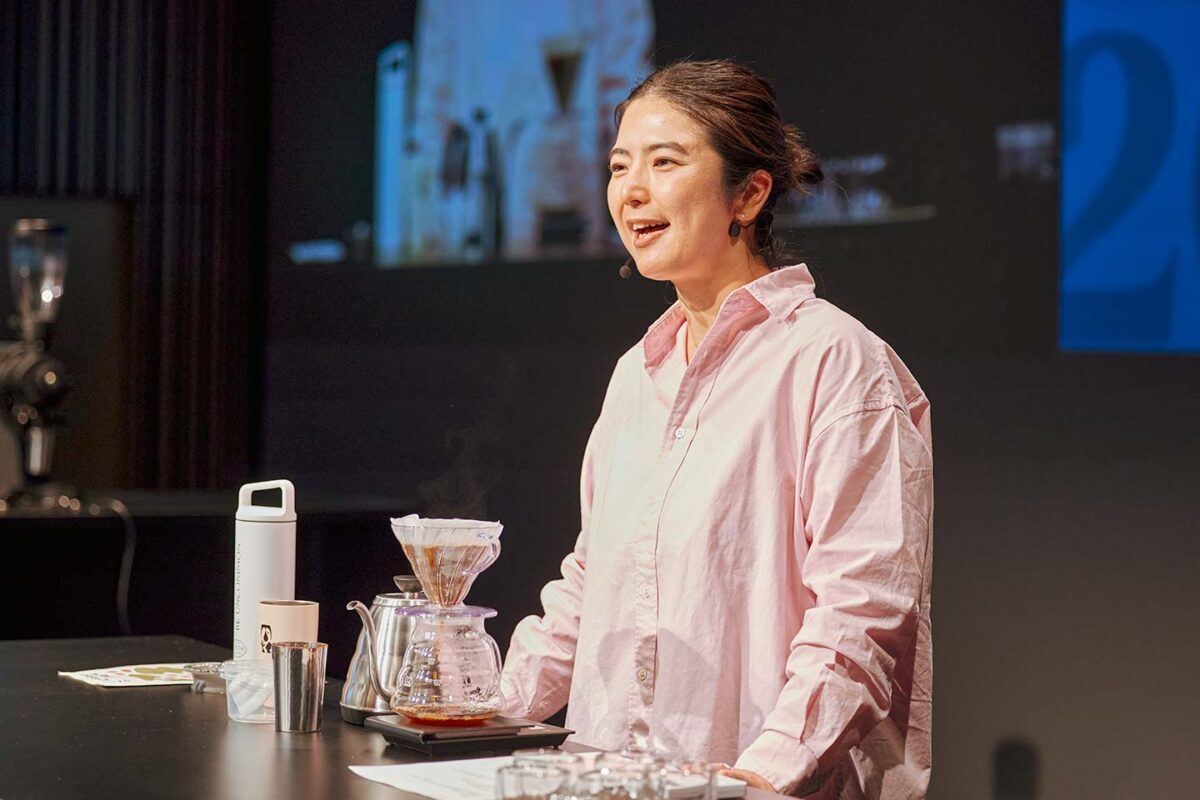
◆ LATTEST / Yumi Munehiro
Everyone is great in their own way
I decided to enter the 2-Star round because I figured I had nothing to lose (laughs). When I asked my team, “Do you think I should give it a shot?” and they were all like, “Absolutely, go for it!” And when I brought up the idea of making a presentation video and asked if they’d be willing to participate, they all jumped on board enthusiastically. That’s when I knew I had to do it.
My goal wasn’t necessarily to become the 3-Star roaster, but to get more people interested in visiting LATTEST, no matter what their reason might be. So, after it was all said and done, it warmed my heart to have people buying our coffee and saying things like, “Your calm and lovely presentation was so LATTEST-like” and “In our eyes, you were the 3-Star.”
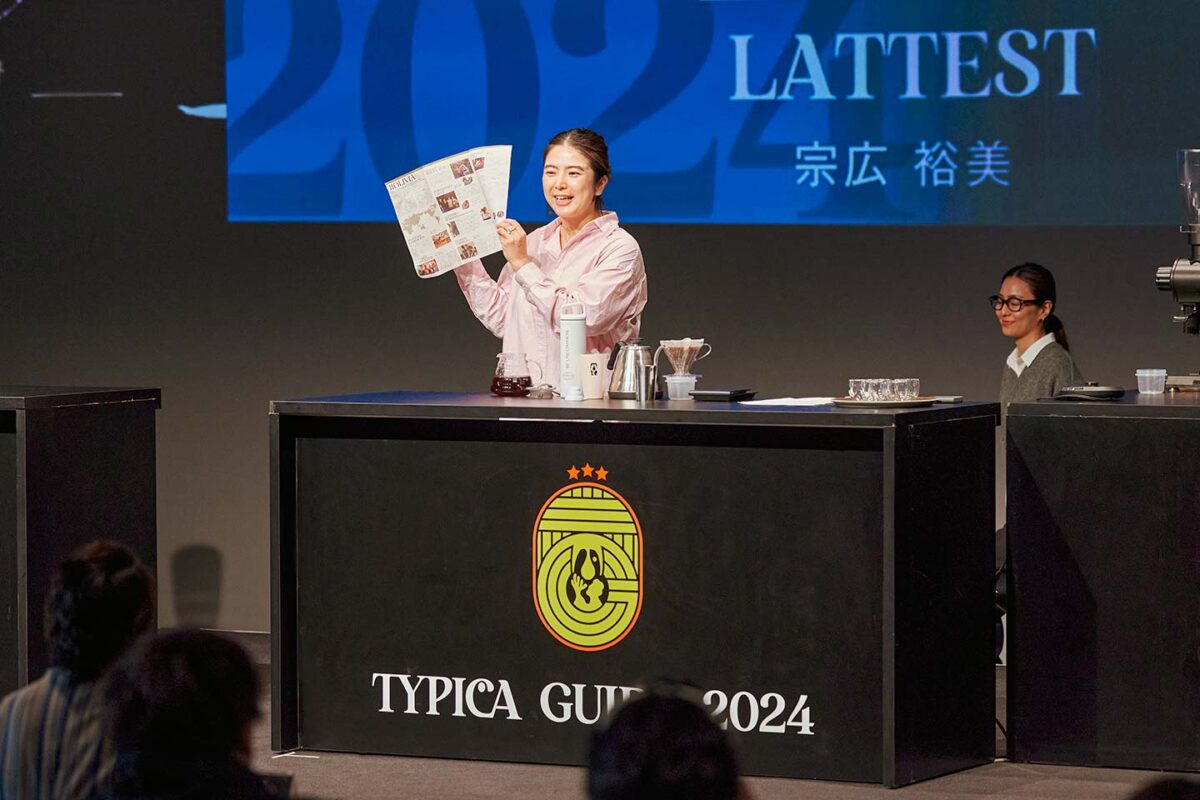
I’ll admit, I used to get a bit down on myself when comparing our shop to others, but I’ve come to realize that we’ve got our own unique charm, and it’s pretty interesting that everyone brings something different to the table. So, going into TYPICA GUIDE, I wasn’t really focused on competing. But if I’m being completely honest, there’s a part of me that’s still a bit bummed we didn’t get that 3-Star (laughs).
One thing I didn’t expect was how much my personal challenge would inspire my team members. About half of the staff tuned in to watch my presentation on the YouTube livestream, and without me even asking, they sent me messages saying stuff like, “I was really moved” and “I feel so lucky to be working at LATTEST,” all because they saw how seriously I was practicing.
I feel like I accomplished what I set out to do in my own way, so starting next year, I’m thinking about switching gears and focusing on recommending other roasters who have different strengths than we do. But if there’s someone within LATTEST who’s eager to take on the challenge themselves, I might just have to reconsider. I might give that person the chance to shine.
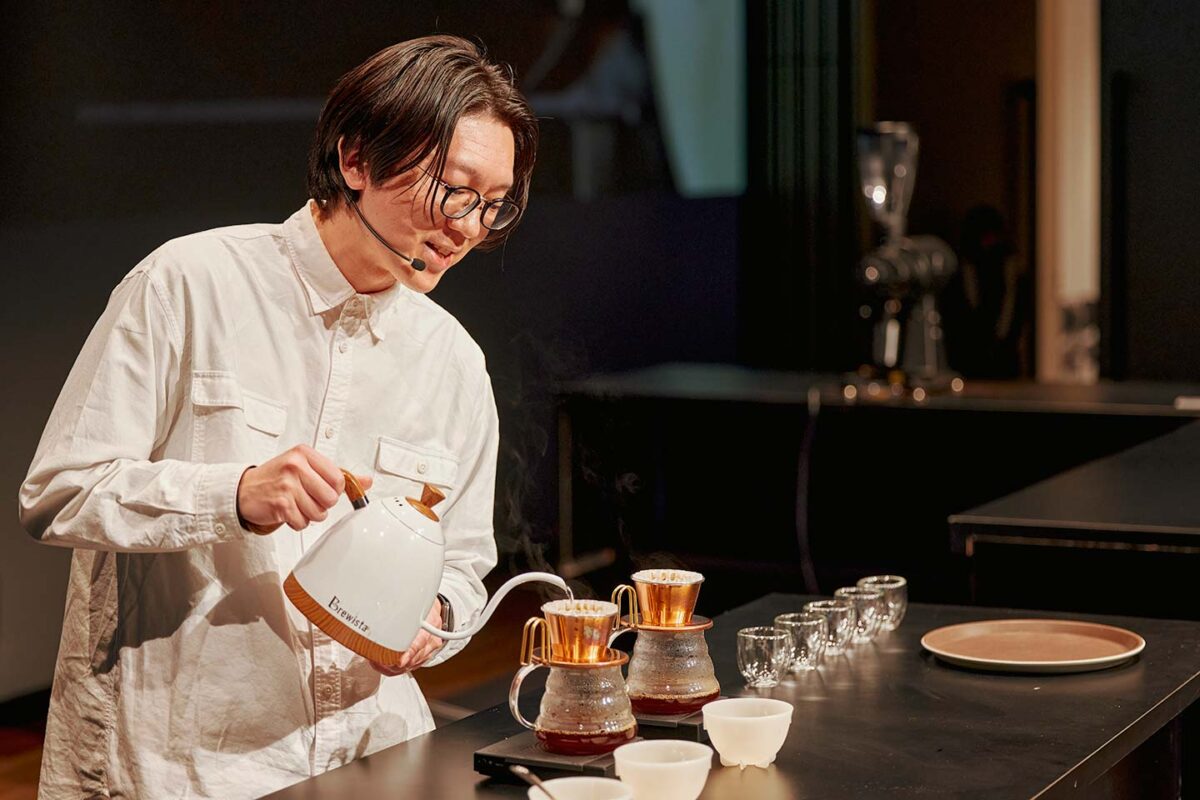
◆ LOUPE COFFEE STAND / Ryosuke Masuda
Lack of experience can be a strength
To be honest with you, I never thought I’d be chosen as a 2-Star Roaster, considering I only opened my shop two years ago and started roasting just a year ago. But the final round isn’t a stage that just anyone can step onto, and since I was lucky enough to be given this opportunity, I figured I’d approach it in a genuine way, focusing on getting people familiar with my shop and letting them taste the coffee I’m always brewing.
After the final round wrapped up and I had a moment to catch my breath, I watched videos of the other roasters’ presentations. That’s when it truly sank in just how mind-blowingly passionate everyone is. Right now, I feel this intense drive to share the hard work of the producers and the heartfelt thoughts of us roasters with more people in their everyday lives, and to create content that really grabs their attention and makes them curious.
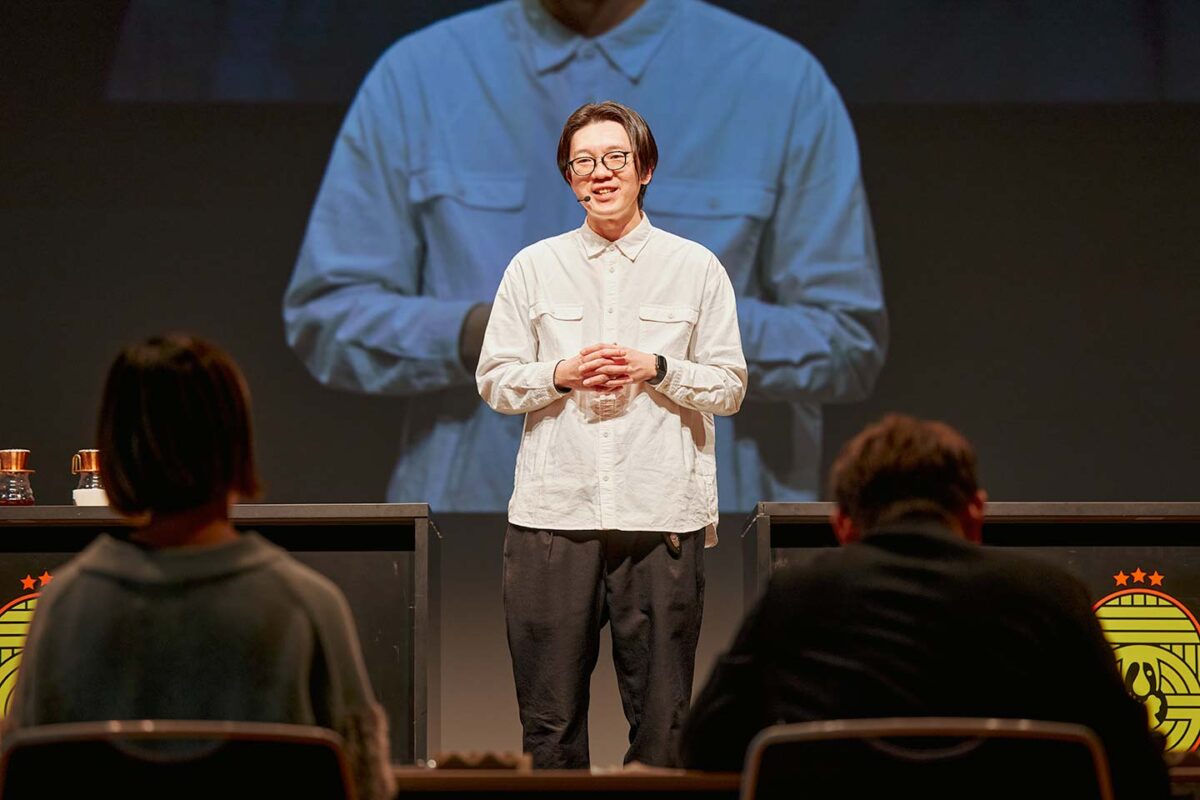
Before this, I was a physical therapist with zero experience in the food and beverage industry or the world of coffee. I don’t have deep connections with producers or years and years of experience to fall back on. I could’ve easily come up with a bunch of excuses not to take on this challenge. But the way I see it, my lack of experience is actually a strength – it means I’m not stuck in a certain way of thinking and I can fearlessly take on new things. That’s a big part of why I’ve made it this far, of course with the help and support of so many people along the way.
In that sense, taking part in TYPICA GUIDE was probably a lot about showing myself rising to the challenge. I mean, it’s kind of a bummer to live in a world where people shoot down your dreams, saying, “That’s impossible” or “you can’t do it,” isn’t it?
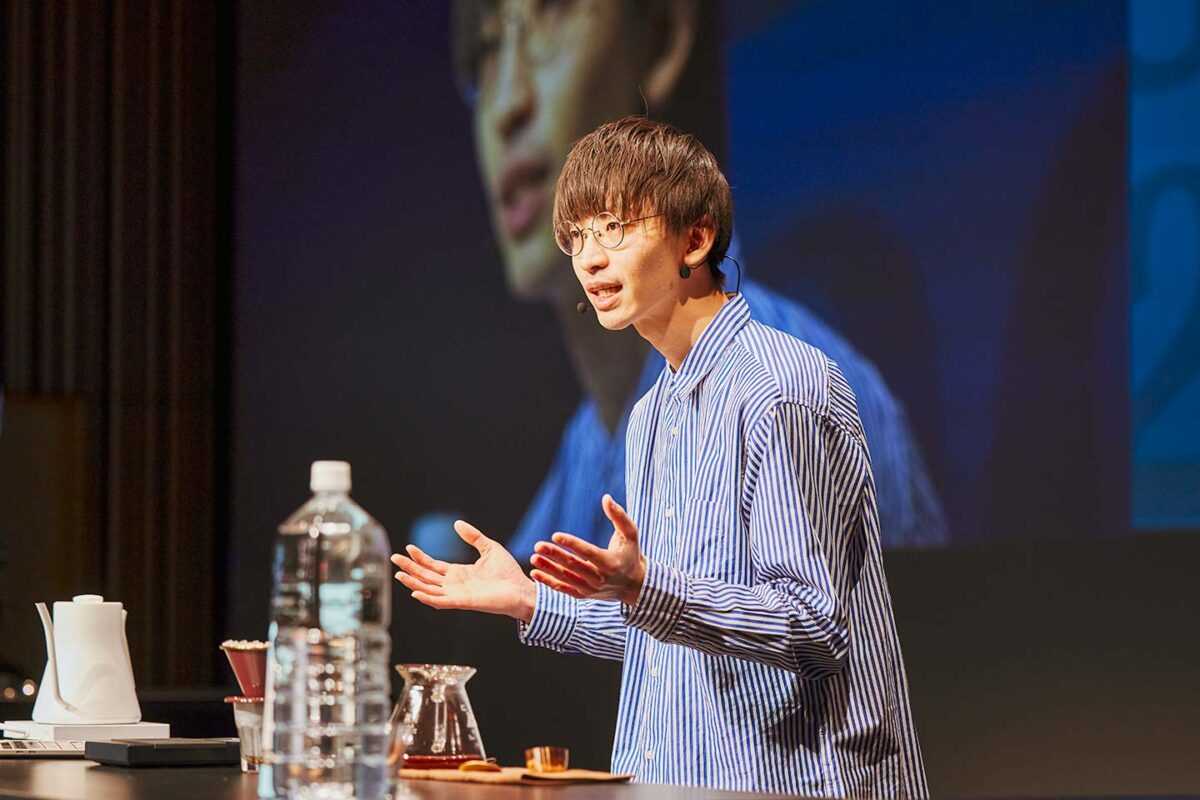
◆ COFFEEMAN good / Yudai & Yuri Hashimoto
Big change starts small
I’m absolutely blown away by the overwhelming response we’ve received since being awarded the 3-Star. Every day, customers have been showering us with congratulations and gifts, and we’ve even gotten messages from roasters I’ve never met saying our presentation resonated with them.
During the preparation period and the actual event, all we hoped for was to connect with even just one person. But after the presentation, when I was brewing coffee right in front of the audience, I was deeply moved by the number of people who came up to me and said things like, “I was so touched” and “It really struck a chord with me.”
If there’s one thing I wanted people to take away from our presentation, it’s this: It’s not about being too small to make a difference; what matters is making small changes in your own world and the world of the people you care about.
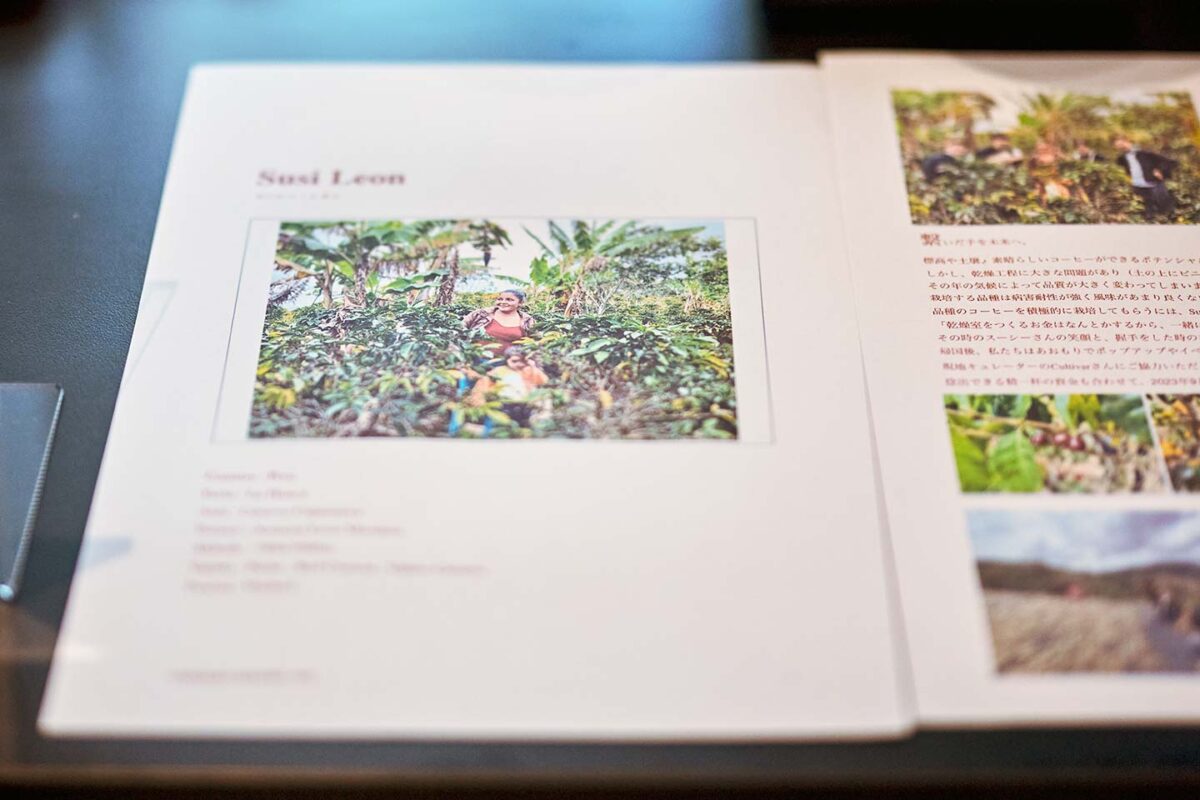
It’s been two and a half years since we visited Susi in Peru through TYPICA Lab and felt compelled to do something, no matter how powerless we felt. I’m amazed and overjoyed to see how one act of genuine care can touch so many hearts. It was a moment that made me believe that even small actions can truly change the world.
None of this would have been possible without TYPICA, Cultivar, a curator, and of course, our wonderful customers. As we strive towards big dreams, we’re reminded of the importance of staying humble and never forgetting to be grateful to everyone who has supported us along the way.

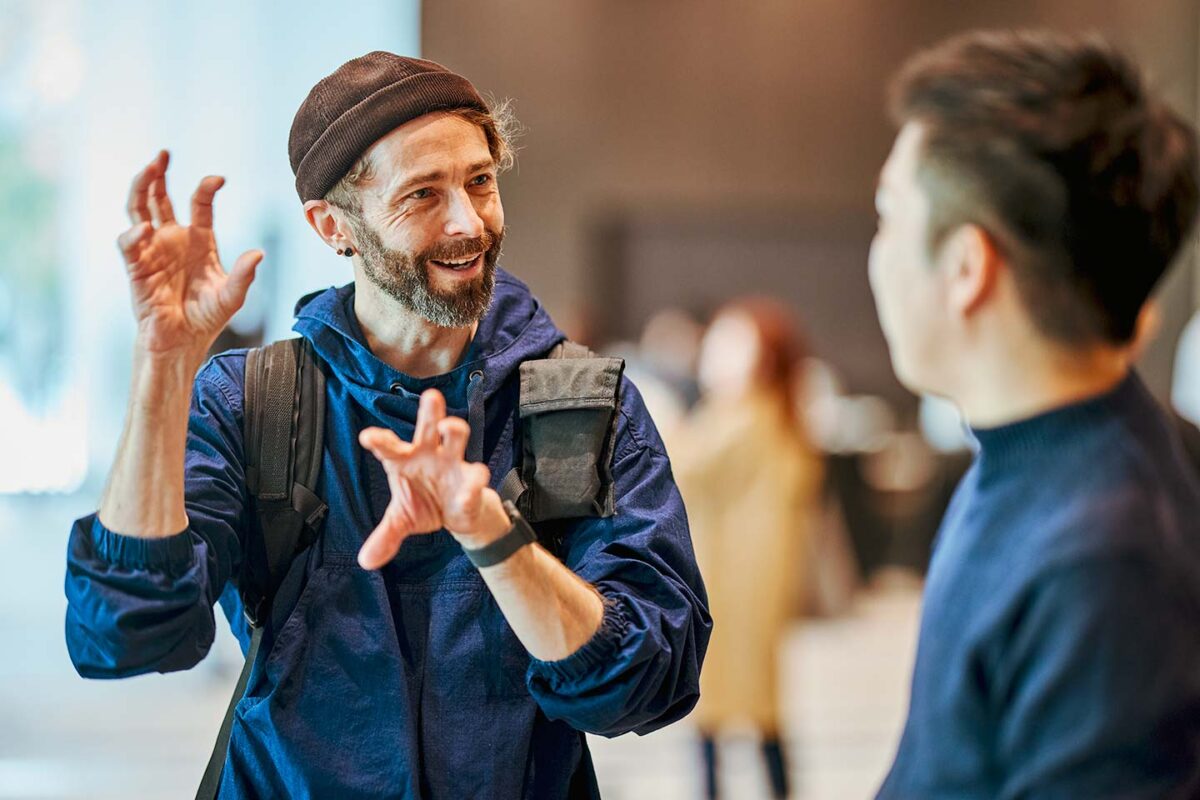
◆ Anyone can be one-of-a-kind
Among those who visited TYPICA GUIDE 2024 was Mathew Amonson, an American who lives in Zushi, Kanagawa. Having spent over a decade running an animation studio in New York and immersed in the creative world, Mathew’s deep fascination with coffee has propelled him towards a new endeavor: now he is setting up his own coffee roastery, ZigZag Coffee.
“There were many memorable moments, but one that stands out is when COFFEEMAN good started playing music at the beginning of their presentation. When Yudai began speaking at a particular moment, it felt like a dance. The entire presentation seemed well-choreographed, with an excellent collaboration between Yudai and his partner, Yuri.
The roasters’ presentations, their coffee, the music they played, and even the clothes they were wearing, all gave me a glimpse of their beliefs about coffee and their personality. It was also fun to see the small communities around them, including those who support their business. It transported me to their space, and I imagined if I visit their shop, I’m going to get the same vibes, perhaps even a richer experience.
Just like art, coffee is something to be experienced with all senses. Everything from the music to the lighting, the furniture, and conversations with friends, enriches the experience of enjoying a cup of coffee. TYPICA GUIDE has been a great introduction for me. It has created spaces across Japan where I’m excited to visit and enjoy coffee.”
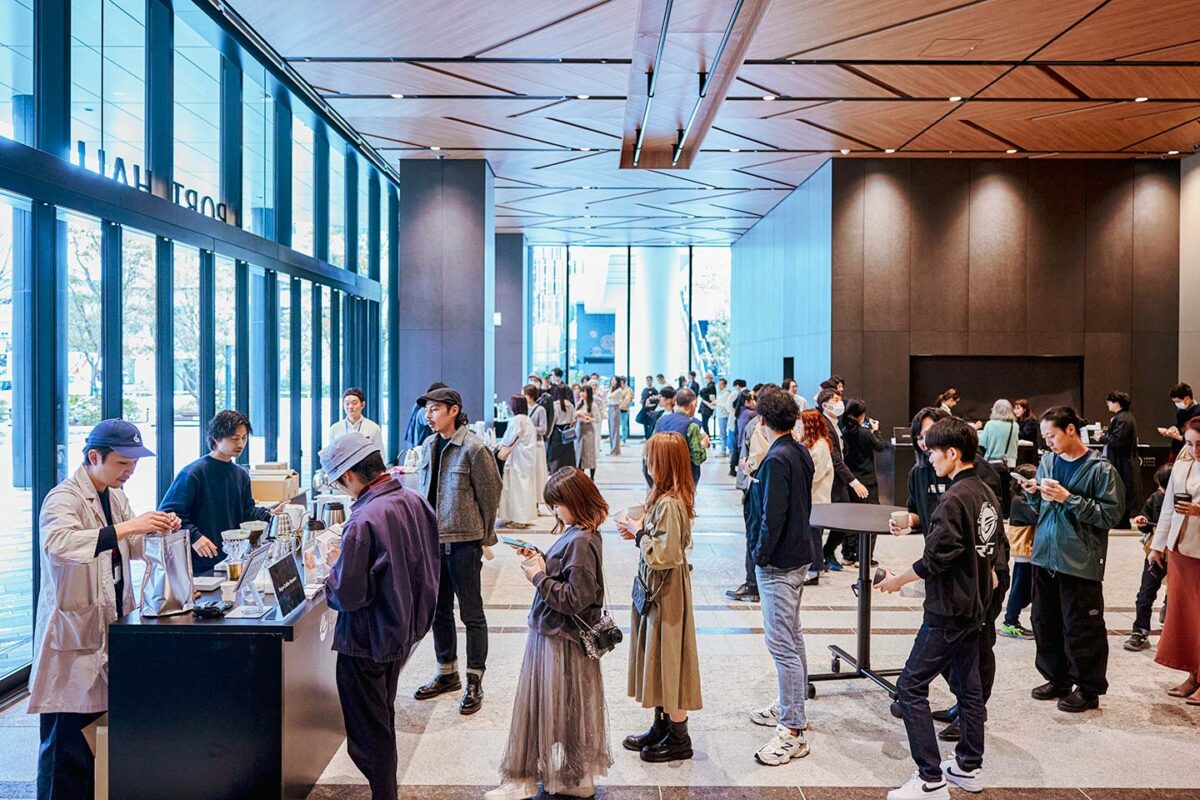
In the world of coffee, there are various competitions out there that showcase the art of flavor and the skills of the trade. But when it comes to picking a favorite coffee spot, people look for more than just that. The personality of the owner and staff, the feel of the shop, and the customer’s empathy towards the shop’s initiatives – it all comes into play, and it’s different for everyone.
Sure, there can only be one “best of the best,” but anyone can be one-of-a-kind. TYPICA GUIDE is essentially an exhibition that says to the world that there are unique qualities that can shine unexpectedly when cast in a different light.
Yamada, the TYPICA co-founder behind this project, puts it like this: “When you really think about it, society is made up of all of us, each and every one. The world should be a reflection of that, but too often, it feels like the rules are made by those who wield power or command attention. That’s why we wanted to create a system where everyone gets a vote. TYPICA GUIDE is our way of building a world where change can start small, with each person making a difference in their own way.”
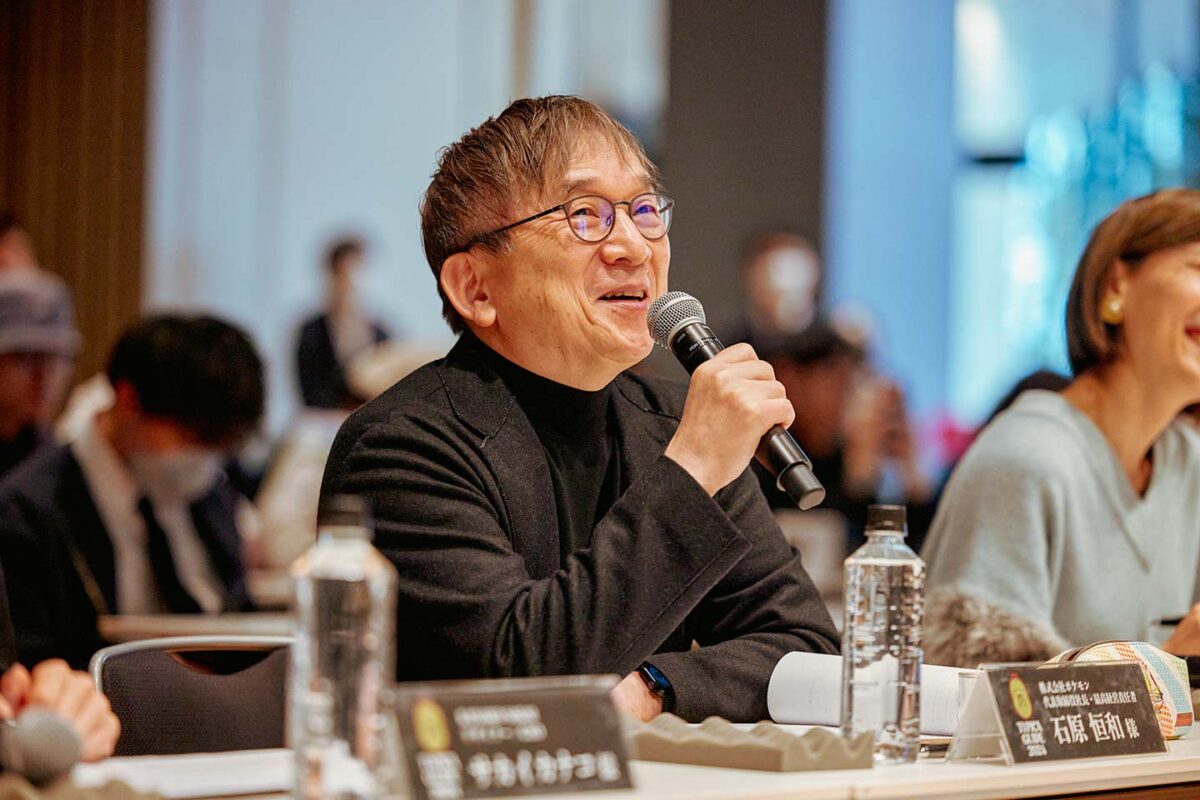
◆ Words from Special Guests
● Tsunekazu Ishihara President & CEO of The Pokémon Company
Every morning, I have this habit of comparing two types of coffee – one that I’ve roasted myself and one roasted by a pro. It’s like a little competition to see which one tastes better. I usually end up losing, but by really digging into the differences and trying to figure out why they happen, I’m able to improve my own skills.
So today, I’m definitely grabbing some coffee from all the 2-Star Roasters whose presentations I got to hear. With seven different varieties, I’ve got a pretty exciting week ahead of me (laughs).
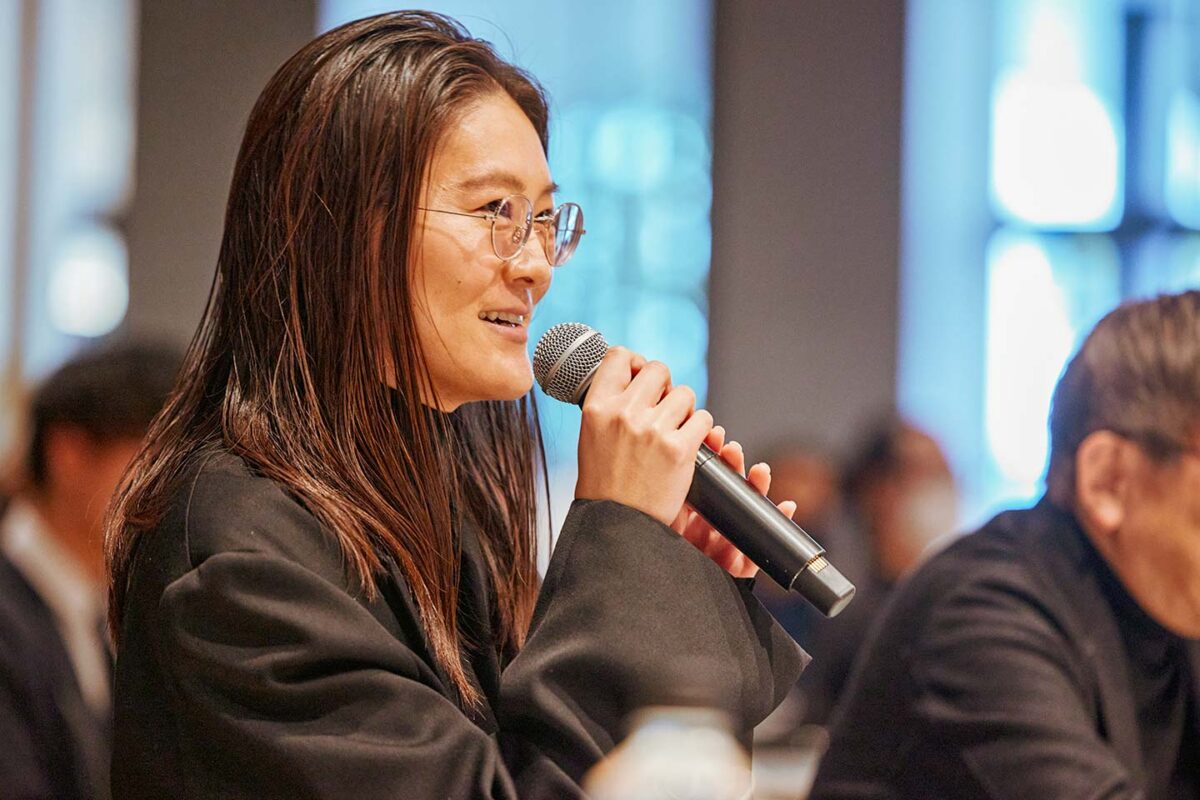
● Kanako Sakai Designer and CEO of KANAKO SAKAI
I know the fashion industry has a huge environmental impact, using tons of resources like water and energy and pumping out a lot of greenhouse gasses. And the supply chain is filled with middlemen, which means a lot of the technical work gets outsourced. When I think about these massive problems, it’s easy to feel like what we’re doing is just a drop in the ocean, and sometimes I can’t help but feel powerless.
But listening to everyone’s passionate presentations today, it hit me that every industry is facing similar challenges. I was so moved that I almost teared up. It reminded me that even if we’re doing something small, as long as we keep at it with passion, it matters. I feel re-energized and ready to keep pushing forward.
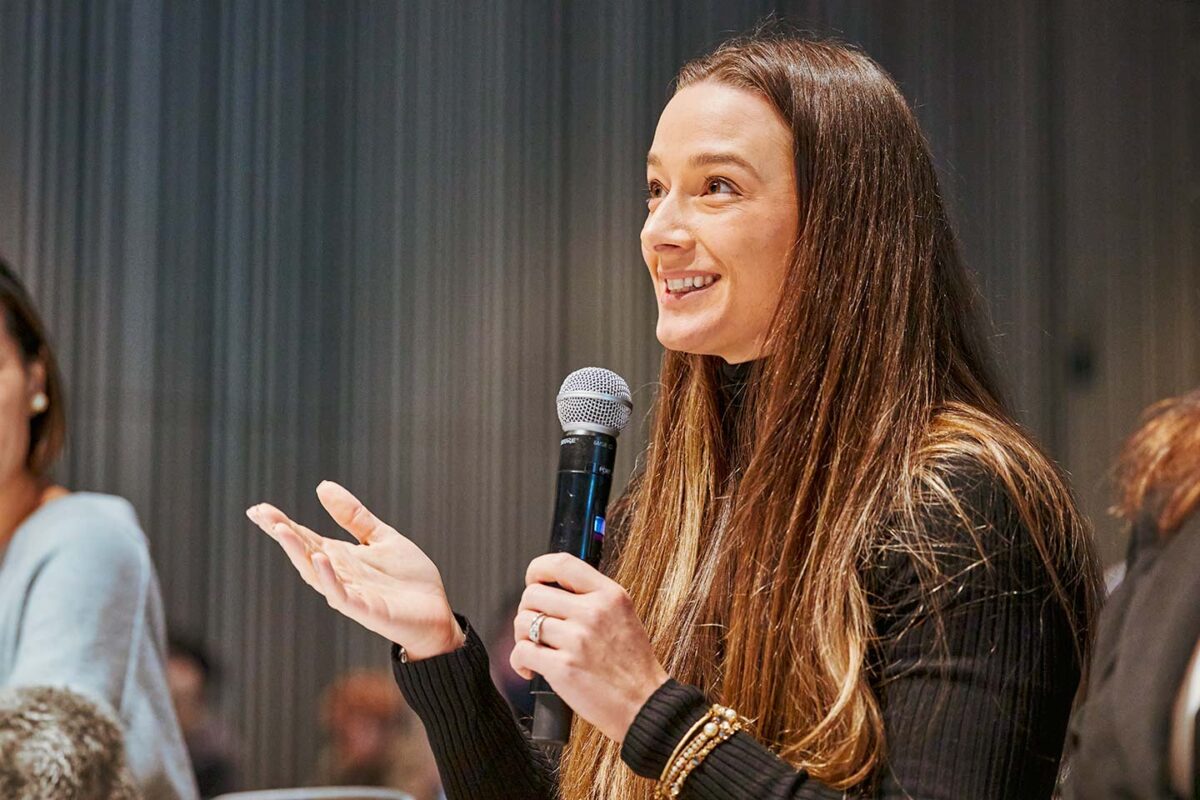
● Teresa Costa Co-founder of The Coffee Quest Brasil
As someone who watches producers pouring their love into making coffee, it was deeply moving to see people on the other side of the world carefully roasting that coffee and presenting it to consumers. In a world where competitions often focus on who can brew the best coffee through sheer skill, this was my first time participating in an event aimed at consumers. It was very interesting because the event introduced a new criteria for evaluating coffee.
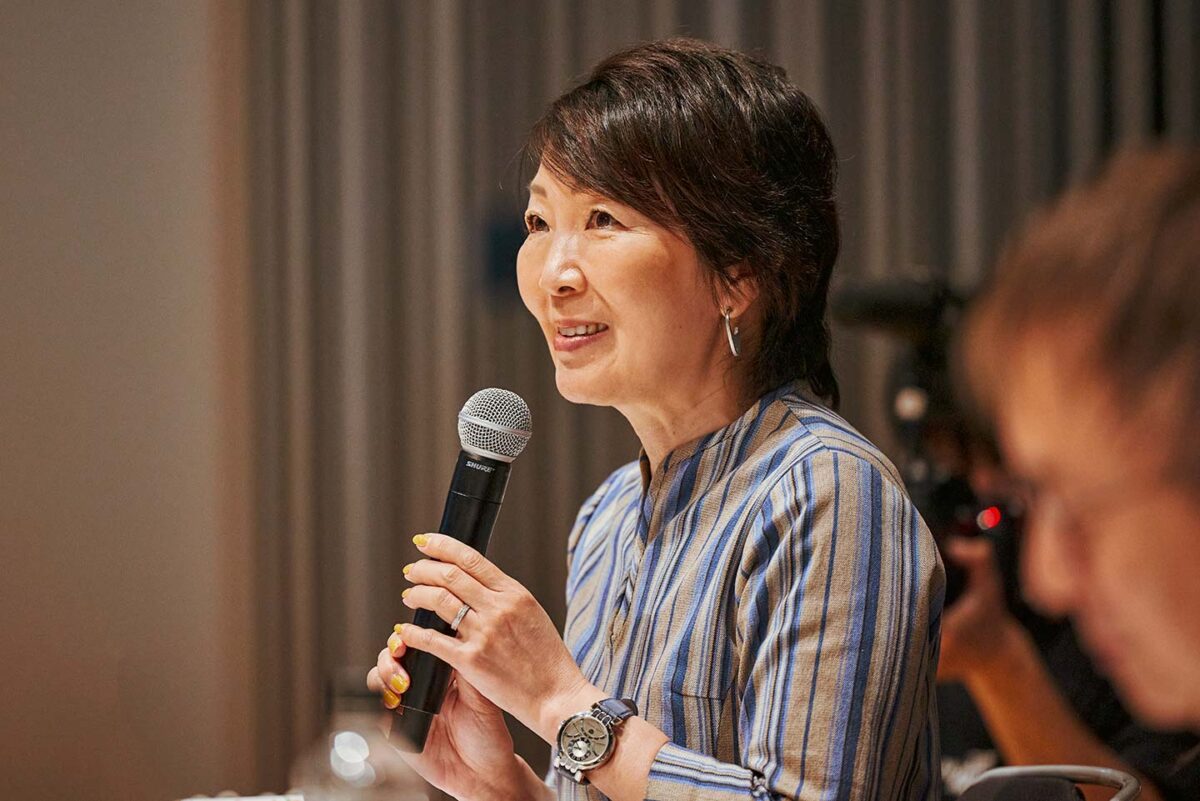
● Hiromi Sogo Editor-in-Chief at Hearst Fujingaho / Specially Appointed Professor at Shinshu University
I was really moved by the dedication and passion of all the 2-Star Roasters during their presentations. It opened my eyes to just how pure and delicious carefully brewed coffee can be. But above all, TYPICA’s sincere efforts deeply resonated with me. As consumer behavior increasingly aligns with the principles of Sustainable Development Goals, I have high hopes that the environment surrounding coffee and our collective consciousness will change for the better.
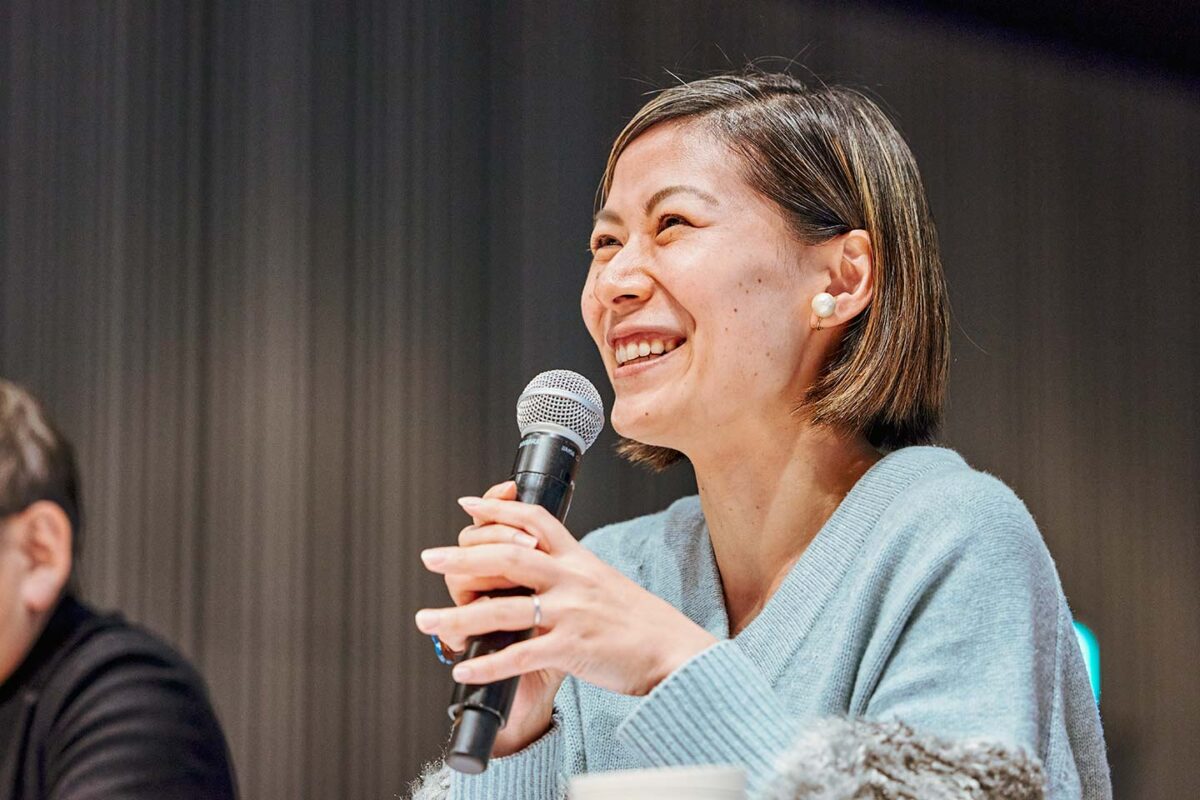
● Akira Sakano Representative Director of Zero Waste Japan / Director/Co-representative of Green innovation / Director & Chief Sustainability Officer of ECOMMIT
Working in the environmental field, I’ve seen two key ways to drive social change: the grassroots approach of engaging directly with people and communicating with care, and the approach of coming together with like-minded folks to change systems and structures, sometimes using the influence of established organizations. This experience has really hammered home the idea that we need both of these approaches to make a real difference. Sure, there are times when we feel powerless, thinking that there’s only so much we can do on our own.
But during the event, I was particularly struck by the stories some roasters shared about visiting coffee producers and seeing the impact of climate change firsthand, as well as the collaborative efforts with TYPICA and export companies to buy drying beds for the producers. Hearing these stories made me realize that platforms like TYPICA are going to play an increasingly important role in the future. I’d be delighted to see more opportunities for us to learn from each other through this platform, leading to more approaches that tackle the systems and structures in place.
Photos:Kenichi Aikawa
TYPICA GUIDE 2024 Final Round








